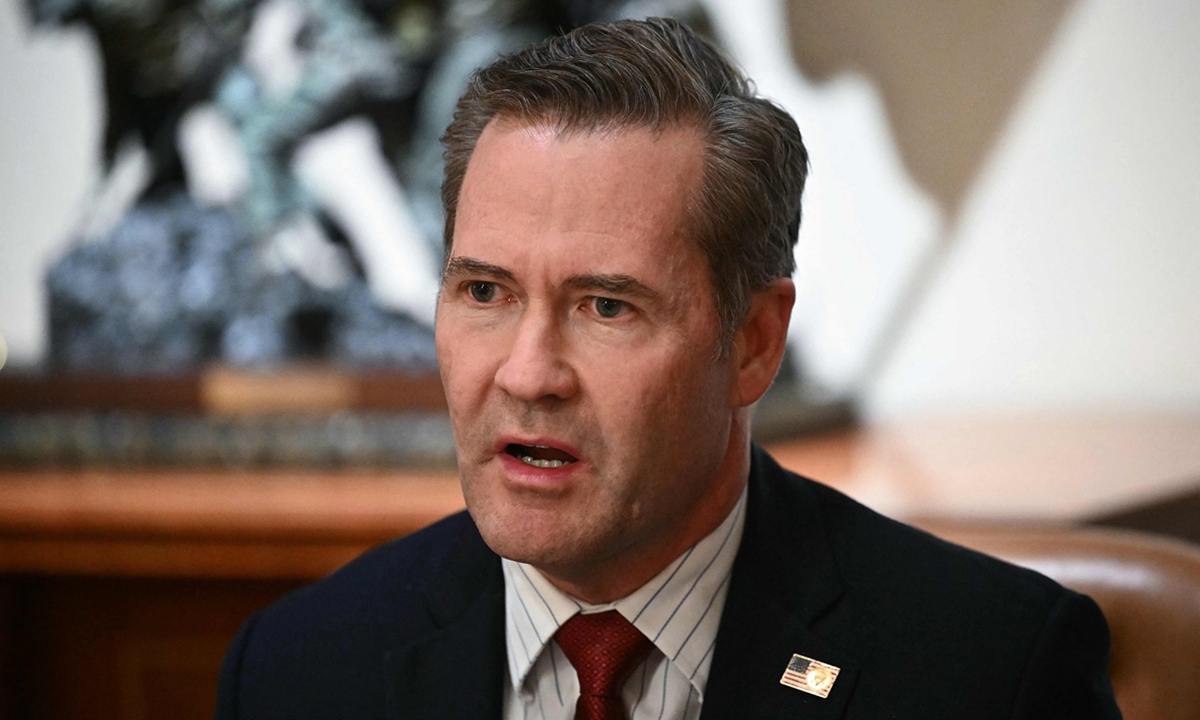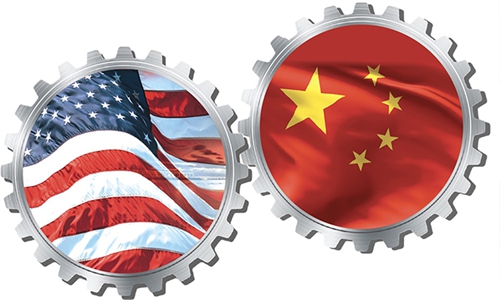
US National Security Advisor Michael Waltz Photo: VCG
The White House's Signal war chat scandal involving senior officials of the US administration continues to ferment. The incident was exposed after Jeffrey Goldberg, editor-in-chief of The Atlantic, was accidentally added to a group chat, causing a major uproar in public opinion. Both parties in the US approached the crisis through a partisan lens, disregarding the truth of the case.
This incident has not only revealed the Trump administration's vulnerabilities in information security and internal management, but also raised questions about the responsibility and integrity of US senior officials.
In fact, Signal is an encrypted program, and its use is explicitly prohibited under a 2023 Defense Department memo that bans "non-DOD messaging systems" and "unclassified systems, government-issued or otherwise, for classified national security information."
On March 18, the Pentagon issued a memo warning all members of staff to stop using Signal, claiming Russian hackers had found a way to infiltrate encrypted conversations on the messaging app.
Yet, the administration's top officials ignored this warning, and just a few days later, Defense Secretary Pete Hegseth disclosed highly classified information in the Signal chat. If not for media exposure, this incident would have remained buried. There is no precedent in US history where senior officials from the defense, foreign affairs, intelligence and national security sectors shared such sensitive military intelligence on a known insecure platform.
The US government's lax attitude toward confidentiality reflects a deeper mind-set. On one hand, officials responsible for diplomatic and security affairs exhibit an air of arrogance, believing that, as the world's most powerful military force, the US can easily launch military strikes against regional armed groups in the Middle East. To them, convenience in communication out weighs the cumbersome procedures required to safeguard classified information.
On the other hand, many officials in this administration lack substantial political experience, with some being complete outsiders to governance. Their awareness of security protocols is virtually nonexistent. The administration argued that since the military operation was successful, the breach had no real impact.
The US magazine Foreign Policy also covered the leaked scandal, but rather than engaging in self-reflection, it abruptly shifted the focus to China, which had no involvement in the incident. The article claimed that "US cybersecurity weakness benefits Beijing, as Washington's main opponent online." The logic behind this assertion is baffling: Beijing has always had the advantage over Washington in information warfare simply because the US is an open society and China is a closed one.
This accusation is both baseless and off-topic. First, China is not a "closed society." It adheres to a fundamental policy of opening-up, supports the international order and embraces global cooperation. Second, China has consistently maintained a firm stance on cybersecurity, actively combating hacking activities. The country, which is responsible for widespread surveillance after the Snowden revelations, wiretapping the phones of allied leaders and launching cyberattacks on Iran's nuclear program is the US, not China. Third, China has been a frequent victim of cyberattacks, with foreign forces persistently targeting its government agencies and research institutions.
As a result, China has had to enhance its cybersecurity defenses. The Foreign Policy article itself acknowledged that no Chinese official would accidentally add a journalist to a group chat, not least because they wouldn't have a journalist in their contact list. However, instead of recognizing this as a defensive response of China shaped by past cyber threats it faced, the author implied that China's heightened vigilance makes it more likely to launch cyber offensives. This reasoning is absurd.
Such blatant smears and provocations reflect the US' habitual tendency to deflect blame onto others whenever it faces a crisis of its own making. It also reveals a refusal to acknowledge the severity of the issue, take responsibility for mistakes or engage in meaningful self-examination.
By focusing solely on damage control and shifting blame, instead of addressing the root causes, the US cannot avoid similar incidents from recurring in different forms.
The author is a research fellow at the Institute of American Studies at the Chinese Academy of Social Sciences. opinion@globaltimes.com.cn


